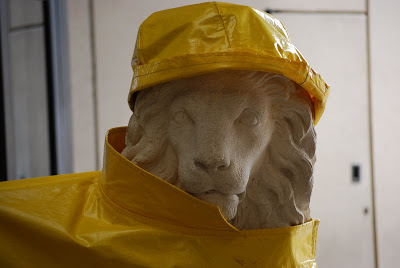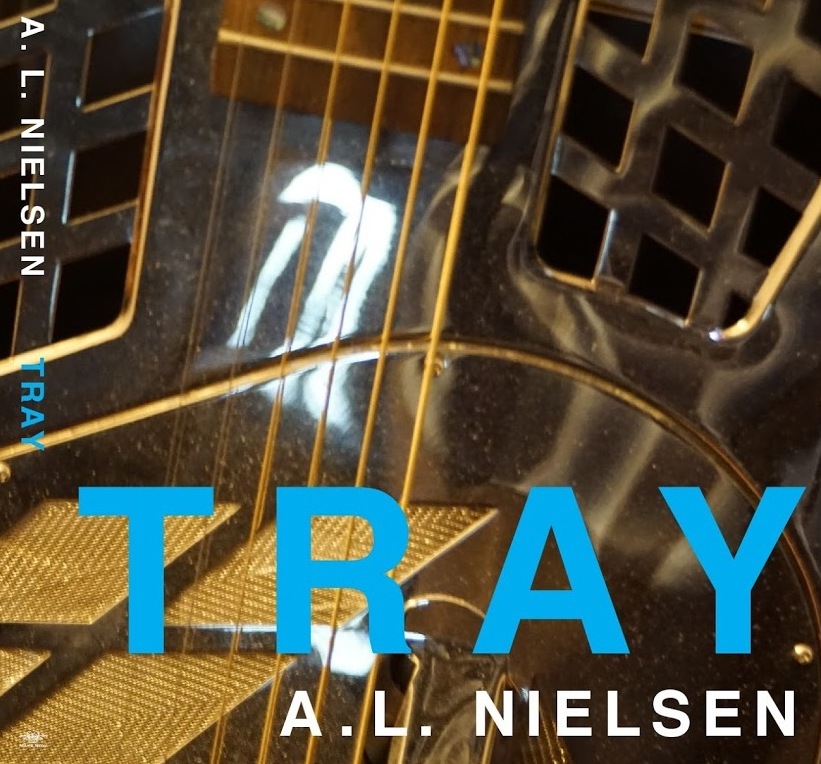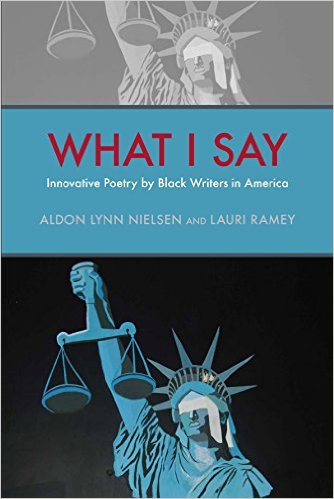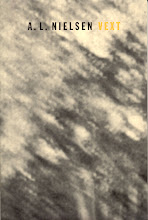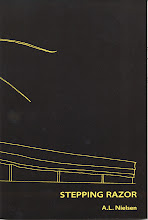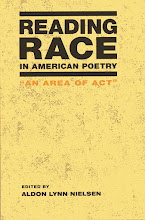
[but things have been changing at Vanderbilt, even in the short time since I visited Nashville for the College Language Association just a few years ago. One sign of those changes was the invitation I received from the MSA conference organizers at Vanderbilt to join a round table on the question of Robert Penn Warren's 1965 book, Who Speaks for the Negro? Last year I spoke on a panel organized by Michael Bibby that addressed issues of race in the construction of Modernist studies; I saw this year's round table as furthering the conversation that Michael had so ably gotten rolling.
Vanderbilt has posted digital files of many of the original tape recordings of the interviews Warren conducted while researching this strange book. You can find some of those recordings at this site.
Thanks to Al Filreis and company, you can aslo listen to a previous panel on this subject, hosted by the University of Pennsylvania, at this link.]
And here is the opening of my own discussion at MSA, beginning with a couple of call and response epigraphs:
"Nigger, your breed ain’t metaphysical."
"Pondy Woods" - Robert Penn Warren
"Cracker, your breed ain’t exegetical."
– response from Sterling Brown
Returning to Robert Penn Warren’s Who Speaks for the Negro from a hiatus of some two decades, I found myself tracking my rereading against a mental checklist I had not realized I was keeping. When Warren took note of the desultory attempts to try Byron de la Beckwith for his murder of Medgar Evers, I was able from my later vantage point to note (in the very margin next to the place where Warren remarks, "The jury . . . was again hung. There has been no third trial") that de la Beckwith had been tried a third time, and at long last brought to the justice white Mississippi had conspired to abet him in eluding. When Warren mentioned the then young Lawrence Guyot, tireless community organizer of the Mississippi Project, I could not only compare Warren’s descriptions to my own meeting with Guyot just this past April at a conference on the Arts in the Civil Rights Era, I could recall how Guyot’s presence had been pointed out at the convocation in Denver of the Democratic National Committee, how Guyot had been honored as one who had worked to bring about this astonishing political moment in America. When Warren referred to the courageous field reporting of David Halberstam, I reread with the new knowledge that even Halberstam had been placed under FBI surveillance that would continue for decades. I also, though, found that I kept thinking of Sterling Brown, an author far less celebrated than Warren, and how he had responded to Warren’s renewed conversation with "the Negro."
On April 3, 1965, Sterling Brown wrote a letter to the editors of Look magazine, having just read a preview of Warren’s work published under the title, "The Negro Now." Apparently Warren had indeed found a new Negro, and a new voice with which to speak. Brown writes:
The eloquent thoughtfulness of Robert Penn Warren's "The Negro Now" (Look, March 23) convinces us that Mr. Warren has progressed since his early career when he portrayed John Brown as a horse-stealing, murderous fanatic, and when, in "The Briar Patch," he trembled at the dire results of literal education for Negroes. Mr. Warren's analysis of the shock treatment that the "book-reading white Southerners" are undergoing is trenchant, and his adjuration to us all, Negro and white, to struggle for our own freedom is as welcome as needed.
Nevertheless, Mr. Warren clings to regional superstitions: e.g. the canard about the difference between North and South which "lumps" with a vengeance. A lingering theme song dear to the southern agrarians sets forth the antislavery elements in the Old South, and doughface elements in the Old North. Still we must be grateful for small favors and some of the favors of Mr. Warren (now an authority on segregation and the thoughts of the Negro) are by no means small.
Apparently Brown expanded on these views at a conference, prompting a quick note from critic Hoyt Fuller:
I also want desperately to know the book (and the passage, if possible) from which you quoted the inestimable Mr. Robert Penn Warren during the conference. I'm dying to get my hands on that book. Mr. Warren is getting away with murder these days, capitalizing on his new-found religion, but he should have to eat those old words.
We can understand that Brown and Fuller might want Warren to eat more crow than he does in Who Speaks for the Negro; we can imagine they might want him to eat that buzzard from "Pondy Woods." But I think it’s important to recognize that at least some of their frustration had to do with the disparity between what they saw of the public reception of Warren’s book and what they knew of the difficulties actually existing Negroes faced in trying to speak for themselves. Brown had signed an earlier letter to the Washington Evening Star, with his usual dose of irony, "A Southern (Negro -- born in D.C) Moderate." Brown had also signed off on a much earlier project in which black public intellectuals provided any number of good answers to the question in Warren’s title some two decades before Warren published his book, Rayford Logan’s edited volume What the Negro Wants. Seeing the acclaim that greeted Warren’s late arriving news while still smarting from the memory of the Logan book’s history must have been nearly as much as Brown could bear.
The University of North Carolina Press had contracted with Rayford Logan for the collection that came to be titled What the Negro Wants. It would seem from the press’s response to the manuscript, though, that they didn’t really want to hear what the Negro wanted. One reader’s report had complained that the volume did not give sufficient time to considerations of how "far the Negro is responsible for his condition." The appropriately named "O.J. Coffin" suggested that the press bury the book, complaining that the contributors "talk of intermarriage and world congresses of Negroes as nonchalantly as Walrus and Carpenter might discuss cabbages and kings." Coffin, we learn from Kenneth Janken’s introduction to a reprint of Logan’s book, returned his reader’s fee, asking that it be given to some Negro charity. N.C. Newbold worried in his report about the harm that Logan’s collection might do, advised the deletion of any and all references to intermarriage, and suggested that if the book were to appear at all, it should come before the public accompanied by an unprecedented introduction from the university press itself detailing the Southern majority’s stance on the issues taken up by these speaking Negroes. William Terry Couch, the director of the University of North Carolina Press, wrote to Logan upon digesting the manuscript’s appeals for an end to segregation: "If this is what the Negro wants, nothing could be clearer than that what he needs, and needs most urgently, is to revise his wants." Eventually, Logan, who read his contracts as closely as Sterling Brown read poems, threatened the press with a law suit, and the book finally appeared, with Brown’s own essay "Count Us In" closing out the collection.
Small wonder then that Sterling Brown, like so many others of his time, found Warren’s belated ameliorationist narrative a bit much to take so late as 1965.









